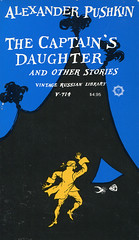| English: MOSCOW. Russian writer Alexander Solzhenitsyn, at right. (Photo credit: Wikipedia) |
| Cover via Amazon |
| (Photo credit: literaturarussa) |
Commentary
Russian books were big at BEA (Book Expo America) 2012 (read about BEA 2013). This reminds me of events following my stumble upon a site or networking group about "what Russians are reading."
When I check stats for my blogs I notice returning visits from Russia. I do not get specific location information, yet knowing that much is a thrill. I am an admirer of Chekhov's stories, and others from years ago, such as Tolstoy and Pasternak. These are the Russian writers the average American would, I think, know about first.
This has fit me regarding Russian writers, since in the 1970's a friend urged me to read her copy of Aleksandr Solzhenitsyn's writing about Soviet forced labor camps, first with First Circle (renamed and expanded: In the First Circle), and later The Gulag Archipelago (Russian: Архипелаг ГУЛАГ, Arkhipelag GULAG).
At home, with young children, I felt the need to pay more attention to what was going on in the, then, Soviet Union and other parts of the world. Some books especially have the power to open our eyes and minds, as well as hearts. The trilogy gave much insight to readers of many language translations.
This has fit me regarding Russian writers, since in the 1970's a friend urged me to read her copy of Aleksandr Solzhenitsyn's writing about Soviet forced labor camps, first with First Circle (renamed and expanded: In the First Circle), and later The Gulag Archipelago (Russian: Архипелаг ГУЛАГ, Arkhipelag GULAG).
At home, with young children, I felt the need to pay more attention to what was going on in the, then, Soviet Union and other parts of the world. Some books especially have the power to open our eyes and minds, as well as hearts. The trilogy gave much insight to readers of many language translations.
Today I visited an online site featuring a 2011 book fair in Russia, and saw a video of men, women, and young people looking at and buying books. The young people seem to be intrigued with books as avid readers. Isn't that terrific? And they know the classical writers of their country, as well as being interested in Tolkien and Garcia Marquez, just two examples. Are we lagging behind their knowledge, in the U. S.?
One young girl said she enjoys "Bulgakov." I had not heard of this writer so I searched his name online. Here is an interesting quip: "In 1901 Bulgakov joined the First Kiev Gymnasium, where he developed an interest in Russian and European literature (his favourite authors at the time being Gogol, Pushkin, Dostoyevsky, Saltykov-Shchedrin, and Dickens), theatre and opera."
You can see how far the works of the caliber of Dickens have reached and how wide his influence, then and now.
We can be increasingly connected through literature in ways that our own words might not be able to express. When, for example, you hear that someone's favorite is one of yours, the connection is immediate. You feel that you know more about the person through his or her preferences in literature and books in general than you might in hours of non-literary discussion.
There is more of it than we could ever explore of outstanding, long-standing books. I think we should make a point of reading more widely among the very best at the craft of stories, poetry, and history...whatever our favorite genres.
Note: Wikipedia's Russian language translation of Solzhenitsyn's title, above in the text, is used with respect; I visited Moscow and St. Petersburg in the 1990s, yet still the only Russian words that I know are "nyet" ('no') and "spaceba" (phonetic spelling of the word I think means 'thank you,' and possibly 'please,' and other meanings).
Jean Purcell 6/5/12









No comments:
Post a Comment